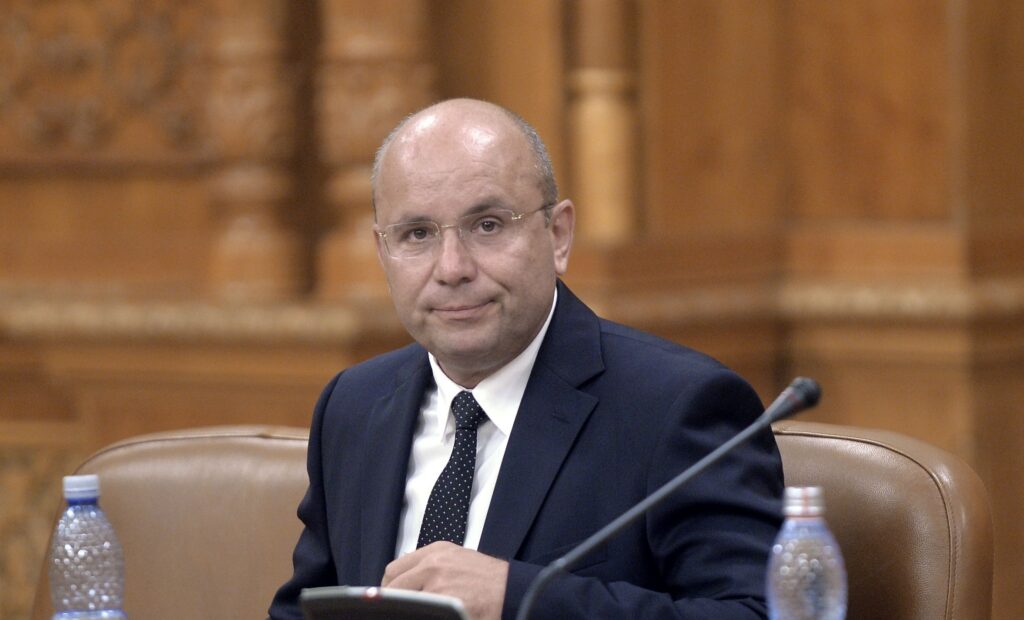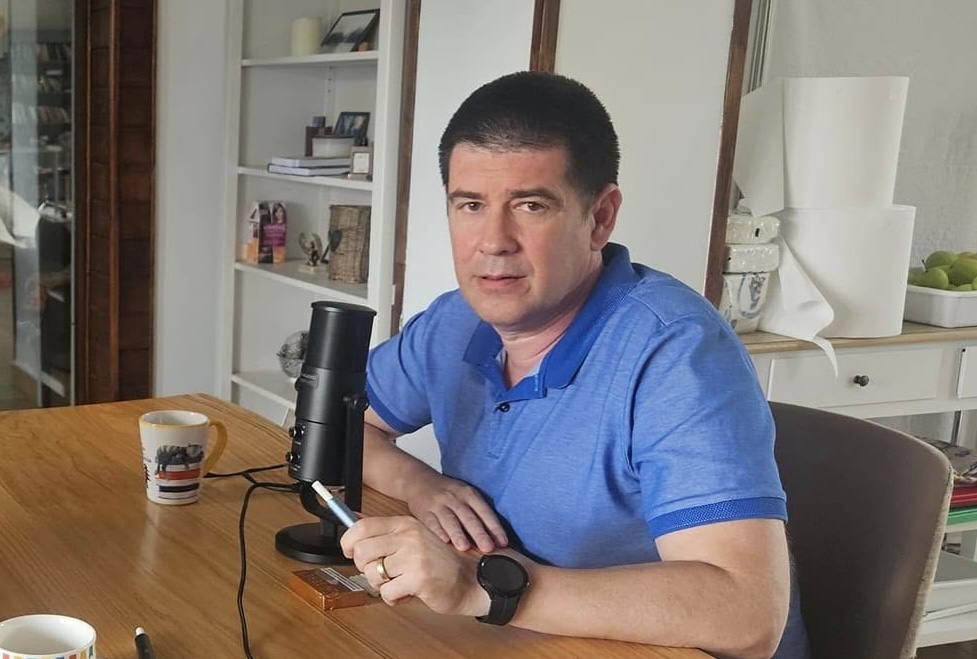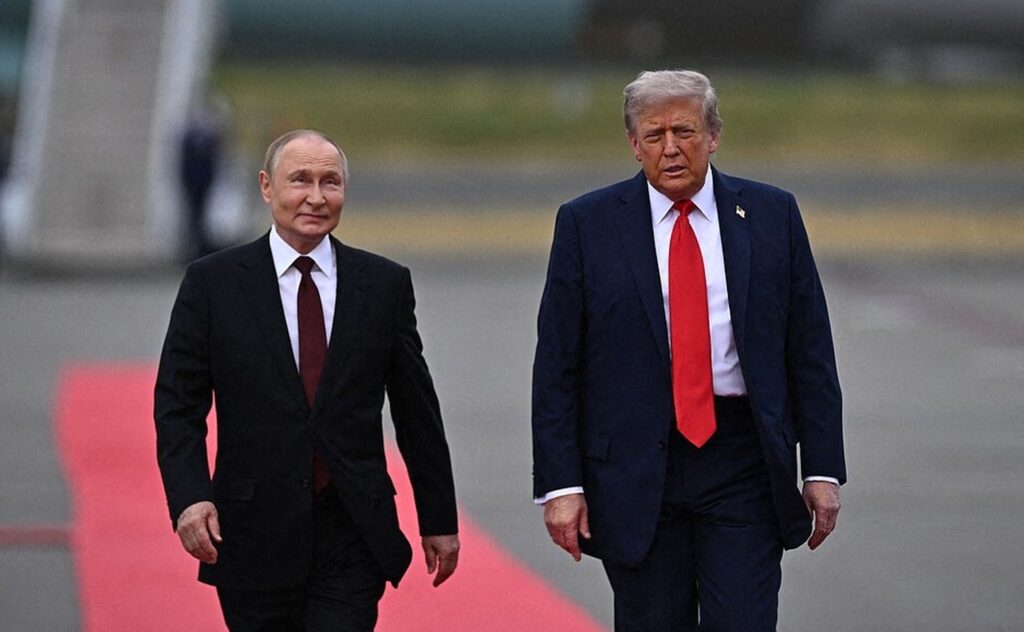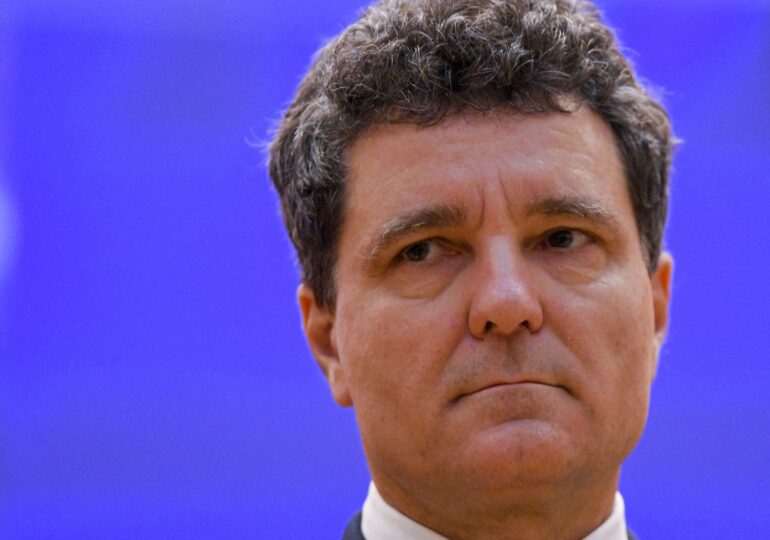Shortly after the meeting between Donald Trump and European leaders, which took place in Washington, a signal of attack against the European Union was issued from the Kremlin.
Thus, television stations controlled by Putin launched debates presenting the discussions at the White House as a huge failure of the Europeans who „groveled” at the feet of Donald Trump.
„Zelensky’s Dead End: Trump clashes heavily with German Chancellor Friedrich Merz at the White House and calls Putin,” announced the publication Komsomolskaia Pravda, portraying the meeting as a major failure.
Russian propaganda centers in Romania quickly echoed the message. Cozmin Gușă, a declared supporter of Vladimir Putin, stated that for him, "the humble attitude, the servile attitude of the Europeans" was not a surprise.

Then, Ion Cristoiu joined the conversation: "...the meeting between Donald Trump and a few European leaders who self-proclaimed themselves as representatives of Europe. No one chose them, there was no referendum. They were not designated by any body. Not even by the European Union..."
Dan Dungaciu, the pro-Russian expert, consultant for the AUR party, also commented on Marius Tucă's podcast, announcing that "...Europeans lost following direct negotiations in Alaska, losses that were also strategically confirmed, if you will, in Washington..."
These are just a few examples of the rapid alignment of the Russian propaganda network in Romania with Putin's position, aiming to discredit Europe's involvement in the ceasefire negotiations in Ukraine.
The above messages and many others alike are distributed by TV stations in the country, by real or fake accounts on social networks, in podcasts, exerting a massive impact on public opinion.
Why does Romania struggle to combat Russian propaganda?
All this happens while the Kremlin sees Romania as an enemy country, with Russian officials repeatedly criticizing the political regime in Bucharest whenever they have the opportunity.
"...Romanian authorities are unwilling to consider the risks or to analyze the national policy taking into account the country's and the nation's sovereign interests, and they disregard the increasingly strong demand of public opinion for common sense regarding Ukrainian affairs," stated a press release from the Russian Ministry of Foreign Affairs, dated July 21, 2025.
After the cancellation of the presidential elections in November 2024, the main reason being Russia's interference in the electoral process and the illegal promotion of candidate Călin Georgescu, in the new campaign, Nicușor Dan repeatedly promised to shed light on the events that led to an unprecedented decision, and to act to limit the influence of Russian propaganda in Romania.
Three months have passed since he became president, and there are no signs of significant progress on the front of the hybrid warfare waged by Russia on Romanian territory.
"...the process of combating Russian disinformation is not achieved through punctual actions and short-term measures...," stated Cristian Hrituc, political analyst and former presidential advisor during Traian Băsescu's mandates, in an interview for spotmedia.ro.

"To have an effect, relevance, the process requires a longer period, effective means, and the development of critical thinking, starting from school. Romania is far behind in combating Russian propaganda because for years we ignored it and considered that the messages had no impact on society," explained the political analyst.
"Now we will need a much longer term and much more sophisticated means because in the meantime, artificial intelligence has emerged, and the methods used to construct post-truth and false narratives are more diverse, more efficient, and more spectacular than the truth," Cristian Hrituc explained for spotmedia.ro.
Change in Romanians' Desire to Live in Democracy
In recent months, Moscow has swiftly created a mechanism by which, within hours, a Kremlin propaganda theme becomes massively spread on social networks in Romania, then taken up by pro-Russian commentators, directed towards television and articles, turning into public debate and controversy.
"For three months now, Russia's propaganda aims to change Romanians' desire to live in a democratic country and to redirect the population's pro-Western options towards an isolationist political regime," stated Valentin Jucan, Vice President of CNA (National Audiovisual Council), in an interview with News.ro.
The official claims that the attack is of an unprecedented intensity, and the reaction of the authorities is practically non-existent in the months following the end of the electoral process.
"The current government is at an impasse. It must choose between reducing the deficit, stabilizing Romania's financial situation, implementing reforms, and combating disinformation. There are too many open fronts. Bolojan is almost alone, he only has a part of the PNL supporting him, the rest are adversaries and anti-reformists. Politically, we know very well that PSD has its own discussions and interests," stated political analyst Cristian Hrituc, explaining the deadlock observed by Valentin Jucan, Vice President of CNA.
The above statements are indicative and show that at an institutional level, not much is happening, with decisions and actions expected from Nicușor Dan, the country's president, and Ilie Bolojan, the Prime Minister of Romania, decisions that are being postponed.
The Opponent Has Much Greater Resources
Meanwhile, Russia is strengthening its propaganda network in Romania, exploiting all legal weaknesses and institutional indecision.
"For example, a false news story emerges: War starts on September 10. To combat such news, you need a mechanism that knows how to intervene. If September 10 passes and nothing happens, the one who launched the news loses credibility only if there is a specialized mechanism, formed by experts, to monitor social platforms and react quickly and consistently," explained the former presidential advisor.
"It's a matter of proportions: the opponent has tens of thousands of people, and you come with 500 people to fight and with millions of useful idiots who spread false information, sometimes without realizing it," Cristian Hrituc explained.
"The fight must also be carried out by regulating communication channels, but here comes the discussion about freedom of expression. There are pressures, including from the US, not to limit American social networks because Trump, for example, was a promoter of fake news. The main problem is the disproportion. The opponent has much greater resources," added the political analyst.

Russia's Strategy is to Provoke Controversies
At least until now, Romania has lost the disinformation war with Russia. By canceling the elections and failing to reduce the frequency and intensity of Kremlin's attacks, our country remains vulnerable within the European Union. This is the main reason why the voices of the new leaders in Bucharest are heard in a whisper or not at all beyond the border.
"Russia always creates new topics. After exhausting the subject of the war starting in September, it launched the scandal of the water from Vidraru. It always invents shocking elements, with a small grain of realism, to have an impact and provoke controversies and social polarization," concluded Cristian Hrituc.

